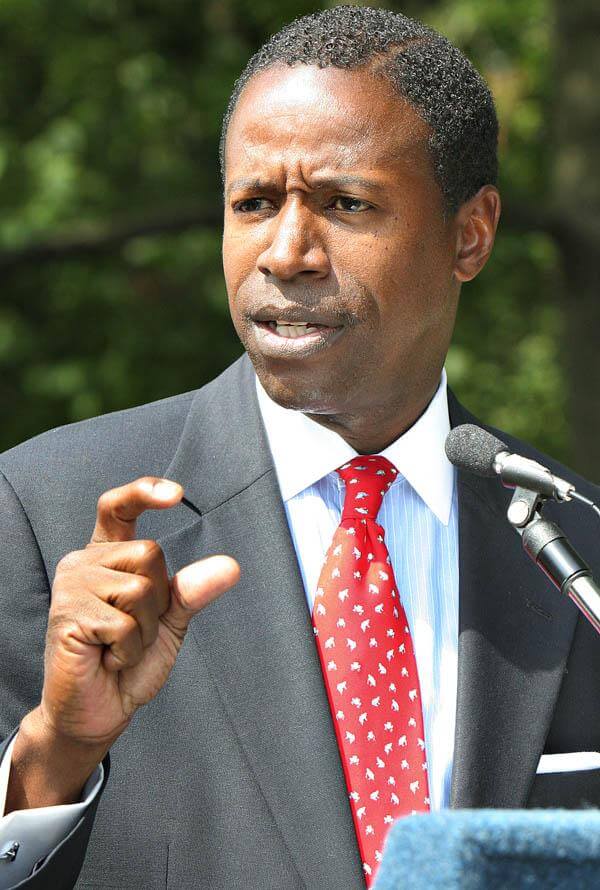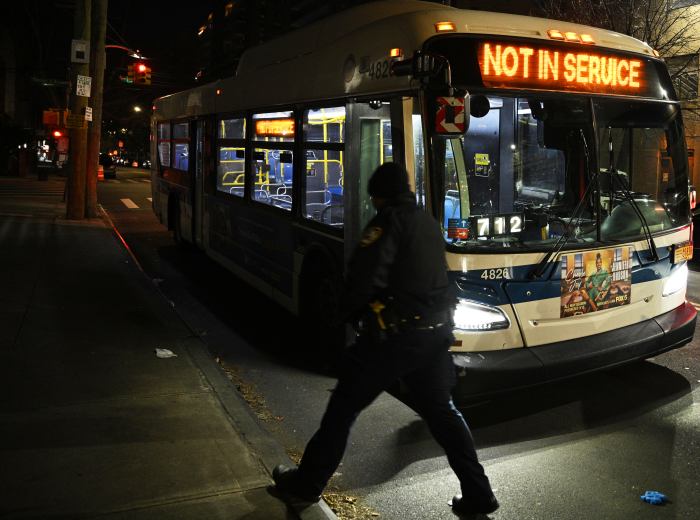By Howard Koplowitz
State Senate President Malcolm Smith (D-St. Albans) is unlikely to face any repercussions in his status as a high-ranking Senate Democrat, even if Republicans take over the body, because of a built-in voting bloc of support as a Democratic leader, according to the analysis of a political science professor at Queens College.
Two years ago, Smith, then Senate minority leader, reached a deal with the so-called Gang of Three that made him majority leader and president of the Senate — the top post of the majority party in the chamber.
But after a coup led by then-Sen. Hiram Monserrate and Sens. Pedro Espada (D-Bronx), Ruben Diaz (D-Bronx) and Carl Kruger (D-Brooklyn), Smith retained his president of the Senate position and Espada became majority leader, but Sen. John Sampson was given the new position of majority conference leader and has since been seen as the face of the Senate’s Democratic majority.
While Smith would no longer be Senate president if Republicans win at least two seats from Democrats in November’s election, he would still have a high-ranking role within the Democratic Party in the minority, according to Michael Krasner, a political science professor at Queens College.
Smith “has a built-in bloc of support,” Krasner said, including Sen. Eric Adams (D-Brooklyn) and other black senators whose chances of losing in November are slim.
Two elements who were a threat to Smith — Espada and Monserrate — will not be in the Senate come January.
Espada, the target of a corruption probe by state Attorney General Andrew Cuomo’s office, lost on Primary Day to Gustavo Rivera 62 percent to 33 percent. A third candidate garnered 5 percent of the vote.
Monserrate, who was convicted of misdemeanor assault in a domestic dispute with his girlfriend, was expelled from the Senate earlier this year and lost a special election to then-Assemblyman Jose Peralta for his old seat. On Primary Day, his bid to return to Albany as an assemblyman also failed, as he lost to Francisco Moya, an activist and former aide to Gov. David Paterson, 67 percent to 33 percent.
Krasner said it was the corruption allegations, not the coup, that did in Espada in the primary.
Diaz, who easily defeated his primary opponent 79 percent to 21 percent, “has a political machine” that solidified his victory, Krasner said.
The political science professor said he did not believe Diaz is “personally corrupt” and that it would take an Espada-like scandal to unseat him.
Reach reporter Howard Koplowitz by e-mail at hkoplowitz@cnglocal.com or by phone at 718-260-4573.



































